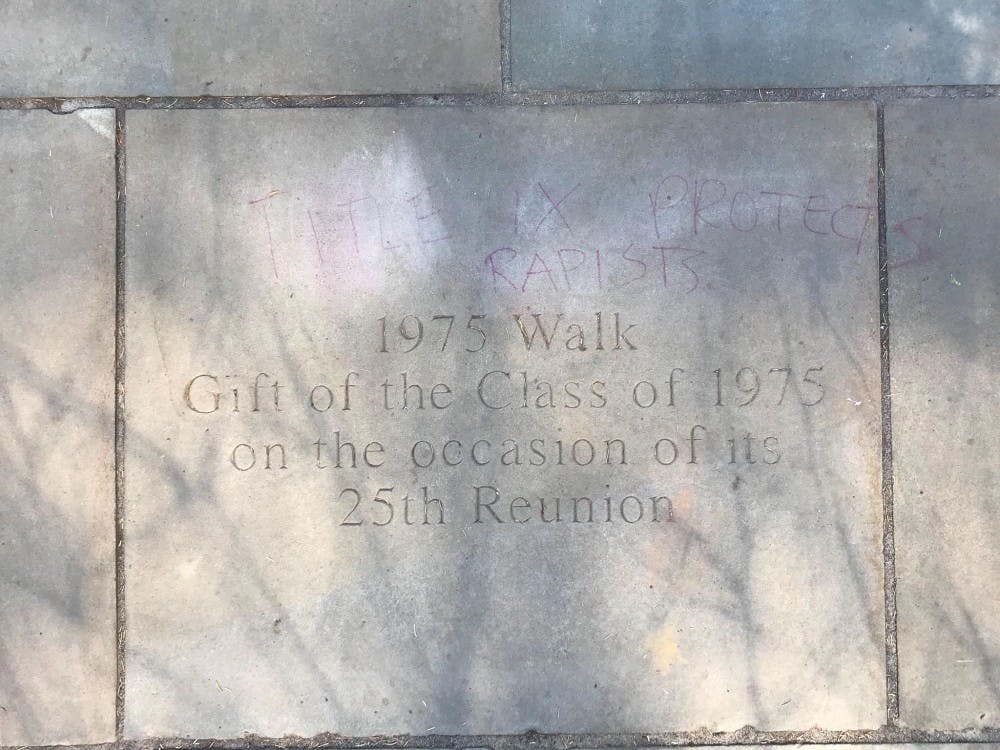On Tuesday, April 9, the first day of Princeton Preview 2019, graffiti was found in Prospect Gardens. Three individual pieces of graffiti — “Title IX protects rapists” in two places and “Fuck Title IX” in one — were written in dark red ink on the ground of the Class of 1975 Walk. As of Wednesday night, the University was aware of the incident and working to remove the marks.
Although the messages were initially dark and distinct on three tiles on 1975 Walk, the ink had been mostly scrubbed away by Wednesday morning, leaving only a slightly pink trace of each message. The barely visible words “Fuck” and “rapists” were covered with duct tape until Thursday, when the messages were completely erased.
“Anyone with information about this incident should contact the Department of Public Safety,” Deputy University Spokesperson Mike Hotchkiss said. “In addition to our concern about this incident, we are also concerned that those involved have the appropriate support and resources.”
This incident follows multiple incidents of vandalism on campus bathroom signs listing resources on campus for survivors of sexual and interpersonal violence.
After the bathroom vandalism incidents, 27 SHARE Peers submitted an editorial to The Daily Princetonian reaffirming their commitment to providing a confidential and nonjudgmental space for survivors.
“We want you to know that we hear you and want to support you to the best of our ability. We believe that every person deserves to be safe, respected, and happy on this campus, and we are here to listen to you always,” they wrote.
In an email to the ‘Prince,’ SHARE director Jackie Deitch-Stackhouse expressed concern that “the person writing these messages has experienced significant harm, either personally or indirectly on behalf of someone close to them,” and also explained, “comments of this nature may dissuade people from initiating a Title IX complaint and reduce access to an administrative process that would otherwise be a viable course of action for them.”
Speaking “as a campus advocate,” Deitch-Stackhouse wrote that she hoped to hear more from the individual who wrote the messages “to see if there are some process, procedure, or policy modifications that can be made to improve the system.”
SHARE peer Jamie O’Leary ’19 echoed Deitch-Stackhouse’s sentiments, noting additionally that the University as a whole is responsible for making resources for survivors more accessible.
“I think the graffiti brings into sharp relief the absence of avenues through which survivors can share negative experiences with Title IX,” O’Leary wrote. “As a campus, we need to immediately create spaces in which to hear their voices and take their complaints seriously.”
The Title IX office deferred comment to the University.









